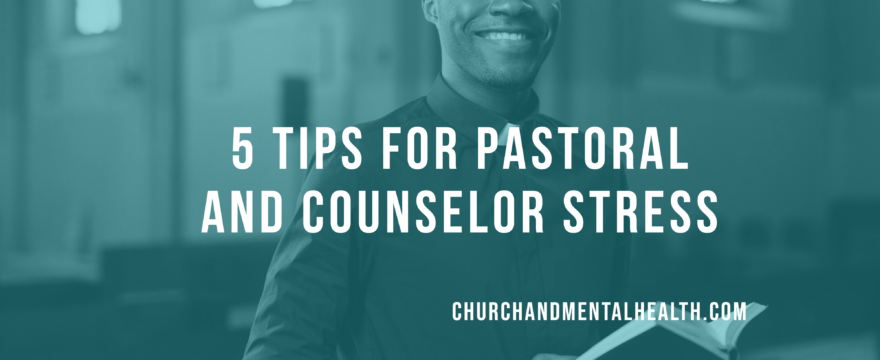Ministry and counseling are challenging due to both positions’ cognitive and emotional toll. We carry our clients’ and congregation members’ heavy burdens, emotional pains, and spiritual scars. Many times, these are things shared in confidence, and only through supervision can we find the ability to share the burden ourselves and through prayer. So, I wanted to share five things pastors and Christian counselors need to consider for themselves in dealing with the stress of these jobs. That being said, share your favorite thing you do in the comments.
1. Strengthen Your Spiritual Disciplines
As pastors and Christian counselors, spiritual practices like prayer, meditation, and scripture reading shouldn’t just feel like obligations. These disciplines ground us, helping us build resilience and stay anchored in God’s truth, especially in stressful times. Regularly turning to these practices strengthens our ability to navigate challenges with peace and purpose.
2. Build a Circle of Trusted Confidants
Having a network of people you can be vulnerable with is crucial. Whether it’s a prayer partner, spiritual mentor, or accountability group, it’s essential to surround yourself with those who can offer encouragement and support. Recognize that some things cannot be shared and make that agreement ahead of time not to discuss certain details. The higher up you are in leadership, the more difficult it can be to find spaces to be open and honest, making trusted relationships even more vital.
3. Stay Aware of Your Emotional Triggers
Escaping or suppressing emotions with distractions like technology or entertainment is easy. However, it’s essential to recognize and address your emotions rather than avoiding them. Acknowledging your feelings and identifying the root causes can help you manage stress more effectively and develop emotional resilience. We all have our brokenness and areas of growth, and there is no shame in knowing and addressing these areas.
4. Prioritize Activities That Bring You Joy
Investing in hobbies and activities outside of ministry and counseling can be a powerful way to manage stress and maintain emotional well-being. Whether it’s spending time outdoors, journaling, sports, cooking, socializing, or practicing mindfulness, incorporating these joyful practices into your routine can help regulate emotions and prevent burnout. Need some ideas? Here are 99 Christian self-care skills.
5. Be Aware of Common Pitfalls
Burnout, isolation, and unrealistic expectations are common obstacles that can undermine resilience. Your warning signs might differ from others, so it’s crucial to check in with yourself regularly. Practices like journaling, counseling, or even taking regular breaks can help you rest and recharge before stress becomes overwhelming.
